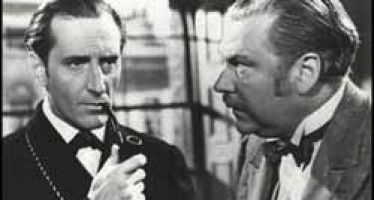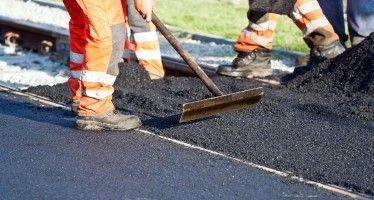Runner: Make BOE 'Client-Friendly'
OCT. 13, 2010
By KATY GRIMES
George Runner may be in the middle of his last Senate term and will be termed out, but that hasn’t stopped the Antelope Valley Republican from running another campaign. But this time, Runner is setting his sites on what he believes is a crucial flaw in the system – taxes – more specifically, the sales and use taxes charged to businesses operating in the state.
For a guy who eschews most taxes, it might seem odd that he would want to surround himself with an agency that is responsible for taxing and has been accused of harassing businesses in the state. But Runner views his run for the Board of Equalization as an important cause.
Known as a tax-fighter and no-nonsense conservative, Runner said he has more work to do, and plans on changing the “climate” in the state. “We need to create a more compatible work and employment climate,” said Runner during a recent CalWatchdog interview. “This is a highly taxed state, and no one is asking what is right and best, in fair tax policy?”
Describing what he calls “the state’s appetite for being the bigger and biggest,” Runner said the ambiguity in the tax system is killing employers and businesses because the default never goes the taxpayer’s way. “The default should always go to the taxpayer,” Runner said, “with an emphasis on fairness, and not just collecting revenue.”
And it appears that Runner has a record of voting to improve the climate in California. He’s voted “no” on just about every attempt to increase taxes imaginable, including recent bills to impose an internet sales tax, a fuel tax, as well as voting against Proposition 1A, and legislative attempts to shift redevelopment funds, and local government revenue to the state.
The BOE is the only publicly elected tax commission in the country. Runner said that there is a movement underway amongst Democrats, to change the statewide election process for Board of Equalization members, to an appointed tax court. Runner vehemently disagrees with the push. He said that the only way to get real tax reform is to continue to elect BOE members. And he pointed out that it is the only time tax payers have any say in the state’s taxing agencies.
Runner said that he is running for the board because of the importance of the scope of the taxing authority over sales and use taxes, special taxes, and the impact the board has when it acts as an appellate body for franchise and income tax appeals.
Runner said he believes his role as an elected board member is not as a tax enforcer, but as an advocate for the taxpayer in order to help California businesses grow and stay in the state.
The sole motivation for running for elected office long ago Runner said, was “to help improve the business climate in the state,” and he wants this to continue. “A good BOE board member provides constituent services, in order to help businesses navigate the process.” Runner explained that too many business owners don’t know where to turn when the BOE challenges the taxes they are paying, or audits them, and said theh BOE needs to be more “client friendly.”
Runner said that the way the BOE is set up, businesses actually do the agency’s job for them, by collecting the taxes on their own services and products, eventually turning the money over to the state. He wants to put a human face on the board, and get back to a more friendly way of doing business in the state.
As for “gray areas” at the BOE, Runner said that there are regulatory schemes and loose interpretations of the tax law that have been abused by some BOE tax collectors, behaving more like the Sheriff of Nottingham, than responsible representatives of the state. Runner said a clear delineation needs to be enforced within the BOE – “how to interpret the issues, as well as making everyone understand that regulators are not policy makers.”
After six years in the state Assembly, Runner was elected in 2004 to the Senate. He has long advocated that the Legislature only meet annually for a three-month session (and to pass the budget), and then head back to the home district, to prevent losing touch with constituents, as well as avoiding the inevitable entrenchment in Capitol culture.
Recently, Runner sponsored a 2010 ballot proposition, the California Photo ID to Vote Initiative (2010). In October 2009, he filed a lawsuit against California Attorney General Jerry Brown, alleging that the ballot title written by the AG’s office was “overly biased.” Brown had titled the measure “Limits on voting” and the summary stated, “Prohibits citizens from voting” unless they show ID. Runner said the AG’s wording was inaccurate, inasmuch as the measure would have allowed citizens who don’t possess identification to vote provisionally, and required the Department of Motor Vehicles to issue free ID cards to the voters.
Runner said that titling the measure “Voter identification requirement” was a more “neutral and accurate description.” According to the initiative’s campaign, the measure did not qualify for the ballot, because it didn’t receive the required 450,000 signatures. It was a grassroots movement that appeared to sweep the state, but not enough to gather the nearly half-million signatures needed.
Runner scored a “3” on the 2009 Capitol Weekly legislative scorecard. The scores were based on votes on 19 bills, with “100” a perfect liberal score, and “0” a perfect conservative score.
Runner’s BOE district extends all the way from Southern California to the Oregon border, encompassing 33 counties from Santa Barbara to Siskiyou.
Related Articles
The dog that didn’t bark: More evidence top Dems want bullet train gone
The California establishment fights dirty when it comes to direct challenges to its priorities and the people it wants to
Does John Chiang have a Boss?
JULY 12, 2010 By KATY GRIMES Who is California state Controller John Chiang’s boss? The answer is surprisingly elusive. Right
California’s roads improve, but still are troubled according to new study
SACRAMENTO – Despite its well-documented inefficiencies and travails, California’s Department of Transportation (Caltrans) has managed to improve the state’s system




